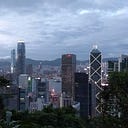Regime change in Bangladesh
1 December 2021, Foreign Policy: “For Washington, the strategic imperative of deeper engagement cannot be overstated.”
March 2022, Victoria Nuland: “Bangladesh and the US will work together to protect democracy and human rights at a time when international law and human rights are under threat.” Nuland was in Bangladesh on a 3-day visit.
July 2023, US Under Secretary for Democracy and Human Rights Uzra Zeya was in Dhaka with US Assistant Secretary of State for the Bureau of South and Central Asian Affairs Donald Lu and Deputy Assistant Administrator for Asia, USAID Änjali Kaur. May 2024 Donald Lu in Dhaka again to “strengthen bilateral cooperation and to demonstrate US support for a free, open, and prosperous Indo-Pacific region.”
- The US wants to build a military base on Saint Martin, a strategic island off the coast of Bangladesh, near Myanmar. PM Sheikh Hasina thwarted its plans.
- 10 July 2024, Bangladesh PM Sheikh Hasina met with President Xi Jinping and “elevated their relations to a comprehensive strategic cooperative partnership.”
- Bangladesh student protests began with legitimate demands, but peaceful demonstrations rapidly turned into riots and not only because of police brutality.
- It transpires that protesters were targeted by a disinformation campaign run by shady social media accounts and bots, mostly controlled by UK and US agencies of chaos. They spread inflammatory narratives and now are trying to instigate sectarian violence.
- USAID, NED and other US organizations have invested heavily in “democracy promotion”, funded NGOs, groomed community leaders, trained activists and student leaders. https://www.ned.org/region/asia/bangladesh-2021/
- Why did they target Bangladesh? China is Bangladesh’s main arms supplier, investor, and trade partner. China invested over USD 10 billion in Bangladesh under the Belt and Road Initiative (BRI) and deals worth USD 40 billion were signed. Bangladesh was the first South Asian country to join the BRI, maintains very good relations with India and Russia — Rosatom is building the first of two nuclear power plants in the country, ninety percent of the $12.65bn project is financed through a Russian loan. Last but not least, last year Bangladesh applied to join the BRICS.
- After Prime Minister Sheikh Hasina resigned on Monday, and the army took control, an interim government will be set up to run the country.
- Enter Nobel Prize winner Muhammad Yunus, US and WEF darling. Any surprise?
- Bangladesh needs massive investments in its infrastructure, and infrastructure projects are being built by Chinese companies within the framework of the Belt & Road Initiative — the Padma Bridge Rail Link will benefit 80 million people and is expected to boost economic growth by 1.5%. It needs power plants to address electricity supply shortfalls, China is building a power plant in Payra ($1.9 bn), Russia’s Rosatom is building nuclear power plants ($12.65bn) to meet the country’s energy needs.
- Muhammad Yunus’ much touted “microcredit” can’t lift a country out of poverty. That’s why the US loves him: the international division of labour underpinning the US-led globalization requires poverty and low wages.
